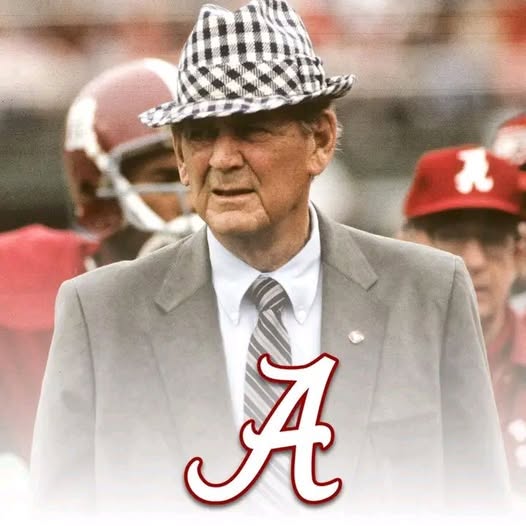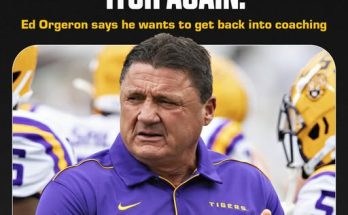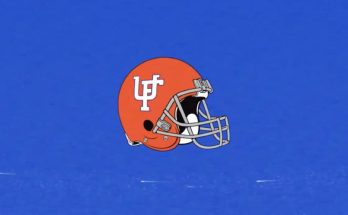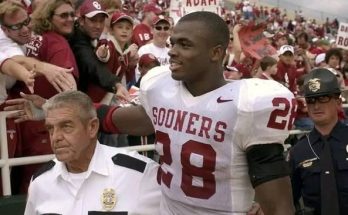Breaking: How a Plate of Chitlins, a Kind Gesture, and a Forgotten Napkin Led Bear Bryant to a Star Player—and Taught a Lesson That Changed Alabama Football Forever
An afternoon somewhere in South Alabama in the late 1950s began like any other recruiting trip for Paul “Bear” Bryant: behind the wheel of his aging sedan, map folded, desperately trying to locate a young prospect’s high school. But as the rumble of his stomach joined the hum of the road, he spied a modest cinder-block building marked simply “Restaurant.” Starving and frustrated, he pulled in. Inside—surrounded by Black locals—Bryant was the only white face. Still, the homestyle aroma of chitlins, collard greens, black‑eyed peas, and cornbread called to him.
A gruff man in a t‑shirt and cap approached. “You probably won’t like it here—today we’re having chitlins,” he warned. Bryant, unfazed, smiled and replied, “I’m from Arkansas. I’ve probably eaten a mile of them.” Laughter broke out. In that moment, Bryant demonstrated humility and candor—credentials more powerful than any university medal or recruiting pitch.
The owner warmed up, asked Bryant if he was local, and when Bryant revealed he was Alabama’s new coach, he directed him to the recruit’s school. When lunch was finished, Bryant reached for his wallet and, despite the owner’s insistence that lunch was on the house, left a respectful tip—enough to say “thank you,” but not more.
Before leaving, the restaurant proprietor asked if Bryant had a photo he could hang up. Bryant hadn’t yet received publicity photos, so he scribbled his name and address on a napkin and promised to send one.
Later that afternoon, Bryant found the recruit. The kid didn’t impress him, and he returned to Tuscaloosa thinking the day was wasted. But that napkin under his keys nagged at him, reminding him of his promise. The next day he mailed a photo to the man, inscribed with, “Thanks for the best lunch I’ve ever had—Paul Bear Bryant.”
Years passed. Alabama’s teams began integrating more Black players. Bryant was back in that region seeking an exceptional offensive lineman. The recruit, though, had his heart set on Auburn until…his grandfather intervened. Word came back: “My grandpa—he was the man at that restaurant where you ate chitlins—he pitched a fit when he heard you wanted me, saying, ‘You ain’t playing for nobody but him.’” (m
Bryant didn’t remember the man, but the student did. “You probably don’t remember,” he told Bryant, “but he still has that picture you sent, hanging in the restaurant. He tells everybody the day Bear Bryant came in for chitlins. He said you kept your word—and that you could teach me more than football. I guess that’s why I’m coming.”
Bryant was stunned. He returned to sign the player, finding the restaurant owner again. On that day, instead of chitlins, the man served ribs “that’d make Dreamland proud.” Bryant posed for photographs, mailed more signed items, and left with deep appreciation. (t
Bryant later turned the anecdote into an enduring life lesson: “It don’t cost nuthin’ to be nice—and the rewards can be unimaginable.” He urged his staff to remember that recruiting revolved around relationships built one handshake, one meal, one promise at a time. (
The story didn’t just echo in locker rooms—it echoed across Alabama’s cultural landscape. Nick Saban, reflecting on Alabama’s legacy of character-fueled recruitment, remarked, “People always remember how you treated them.”
So why did this particular plate of chitlins change Alabama Football forever? First, it was a demonstration of genuine respect. Here was a white coach in segregated Alabama choosing not only to eat in a Black‑owned restaurant but also to appreciate humble food—with gratitude. It built trust and dismantled suspicion.
Second, Bryant sealed his brand through a kept promise. That napkin-scrawled pledge wasn’t some PR gimmick; it was a simple commitment, followed through. It meant enough for the man’s grandson to choose Alabama—not Auburn. In this single gesture, Bryant melded authenticity with integrity—values that shaped his coaching recruitment philosophy.
Third, this was a lesson in culture-building. Rockets and scores are temporary; culture lasts. Bryant’s progeny—coaches, staff, boosters—absorbed the creed: kind actions leave lasting impressions. That lesson rippled into Saban’s era, permeating Tuscaloosa—the university, the team, the community.
Fourth, the timing was culturally pivotal: the tale unfolded as Black players began to integrate into Alabama’s football program. Bryant’s small act proved leadership happens in everyday interactions—not just speeches in meeting halls. That lunch displayed his character publicly long before integration became policy.
Finally, the incident became legendary—not for the delicious ribs, but for the story’s power to transcend time. Bryant told it at booster-club events. Don Meyer retold it repeatedly. Today, it circulates on message boards, blogs, and Medium posts as a testament to relational leadership.
What did Alabama gain? A national-championship‑bound program, yes. But beyond that: legacy, reputation, sustained excellence. The Crimson Tide became more than wins—they became a program that recruited with heart, cultivated respect, and honored its word.
Every big moment in Alabama’s football history—rivalries, bowl games, Heisman winners—draws breath from a culture seeded by a coach who believed kindness costs little. A napkin. A photo. Moments that shaped a dynasty.
Today, as Alabama recruits elite athletes worldwide, that story remains an essential reminder: you cannot coach talent alone; you coach character. Simple courtesies endure. A recruit’s grandfather may not be present at media day, but his trust—and his grandson—may shape seasons to come.
So next time you bite into humble regional fare, remember the game‑changer in Bryant’s bowl of chitlins—not the flavor, but the respect. In a 1500‑word story, we glimpse how one plate and a forgotten napkin rewrote recruiting playbooks and Alabama’s identity. And perhaps, if we’re listening, it rewrites how we treat people, everywhere.
Because at the end of the day, in Tuscaloosa and beyond, Coach Bryant left a truth more enduring than trophies: it truly don’t cost nuthin’ to be nice.



